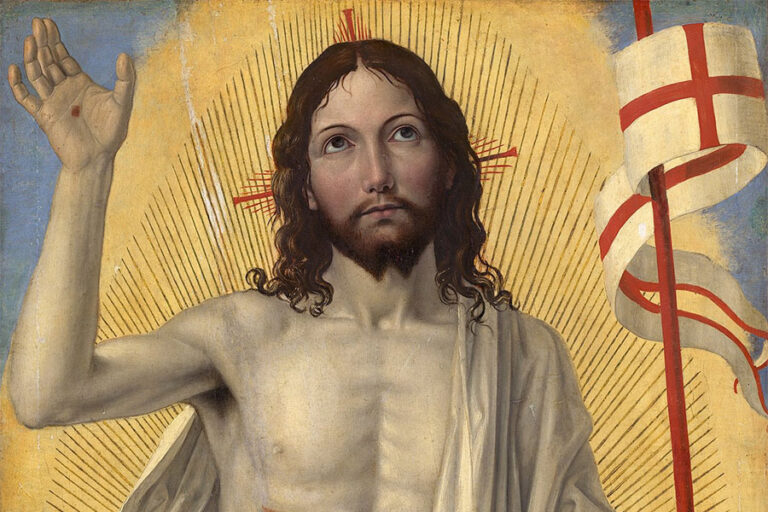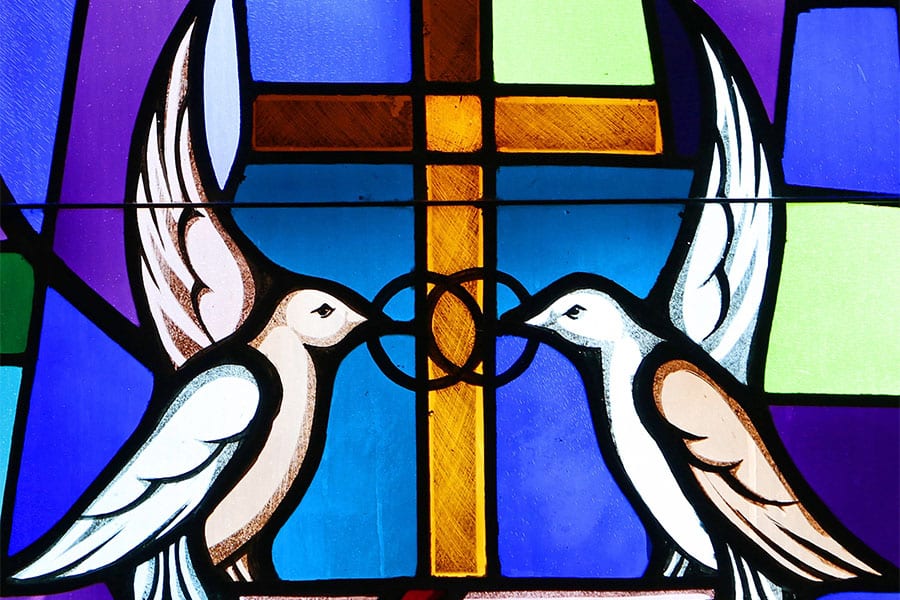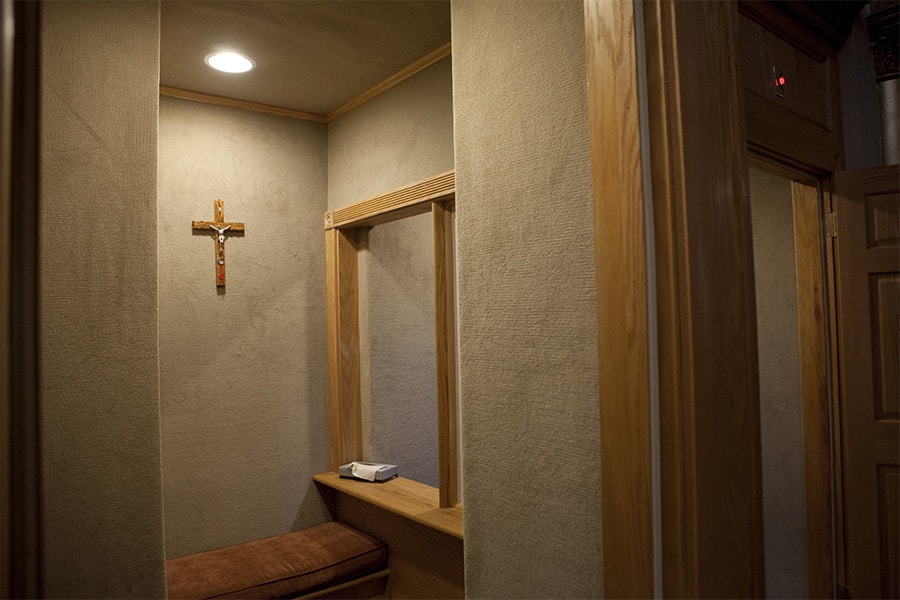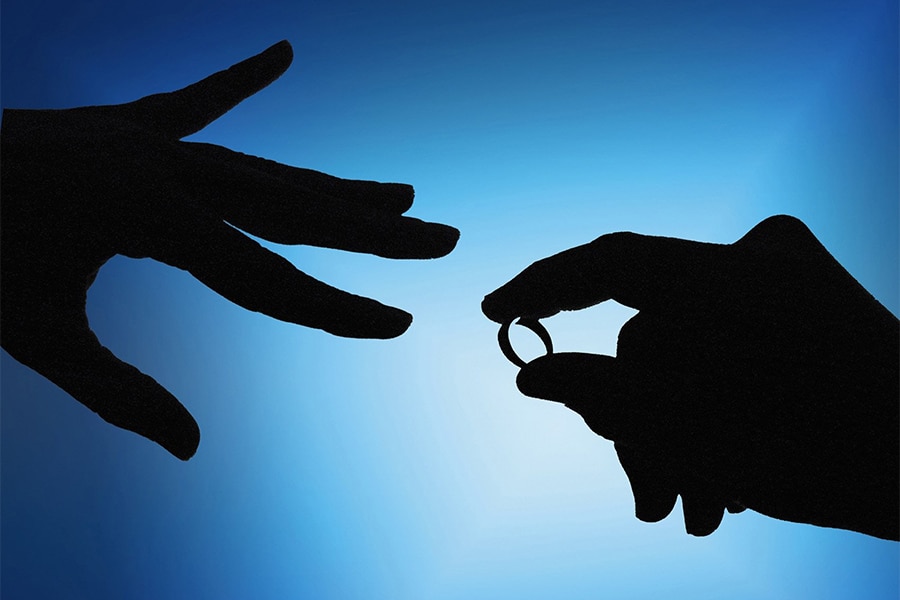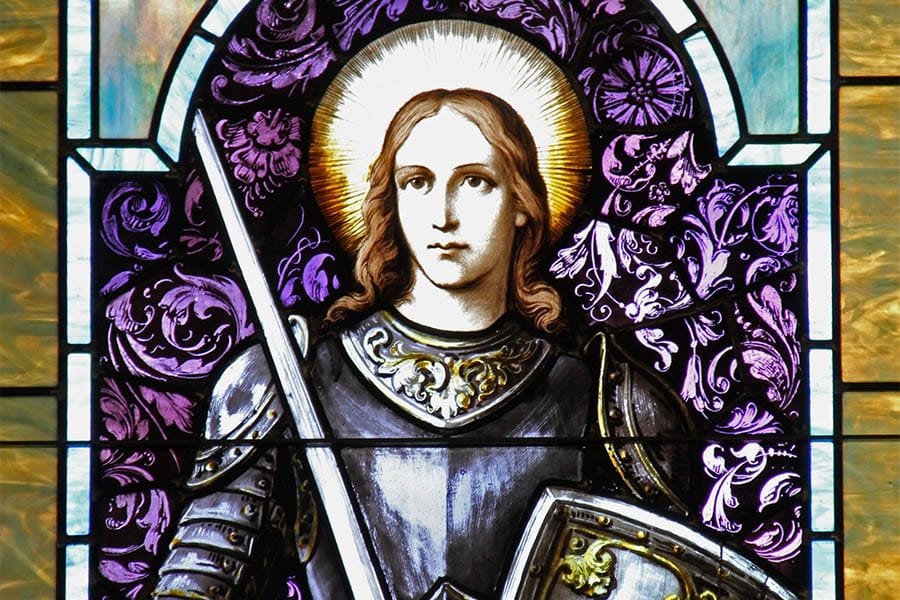Q: Could Jesus sin? If not, was he truly human and free? (Iowa)
A: This is a rather complex question that gets into some deep Trinitarian theology. But I think we can still break this down into some accessible takeaway points.
For some background, we believe that Jesus is truly and fully God, the second Person of the Trinity, the “Word” who was “in the beginning with God” (Jn 1:1-2). We also believe that Jesus is, at the same time, truly and fully human; he is the Word which “became flesh and made his dwelling among us” (Jn 1:14). Jesus is one divine person with two inseparable natures. Incidentally, that is why we call Mary “the mother of God” — because in giving birth to Jesus in his human nature, she also gave birth to him in his divine nature.
If we consider sin as a turning away from God or breaking God’s commandments, then it would seem to be a logical impossibility for Jesus to sin. Jesus, as God, cannot turn away from or betray himself. And we know that Jesus never did sin in actual fact.
At the same time, we know from the Gospels that Jesus was subject to temptation. The most notable example of this is the story of Jesus’ temptation in the desert, where he prayed and fasted for 40 days before beginning his public ministry. Mt 4:1-11 and Lk 4:1-13 give us a narrative where the devil appears to Jesus in the wilderness and tempts him to use his power frivolously by changing stones into bread; to insultingly test God’s love by throwing himself from a great height; and to gain all worldly riches and power by worshiping Satan.
The Gospels do not tell us what exactly was going on in Jesus’ mind and heart at the time of this trial, or to what extent he may or may not have found any of these possibilities genuinely desirable or attractive. Yet the mere fact that the devil made an attempt at tempting Jesus implies that Jesus did indeed have the same free will with which all human beings are endowed.
Similarly, on the night of the Last Supper, immediately before his Passion Jesus is recorded as having prayed: “My Father, if it is possible, let this cup pass from me; yet, not as I will, but as you will” (Mt 26:39). This suggests that it was ultimately up to Jesus whether he would accept his death on a cross. Perhaps it could be debated whether potentially “backing out” of the Passion would have been the exact same thing as committing a sin per se. But this passage of Scripture gives us the valuable insight that: 1. Jesus was free to accept or not accept his passion according to the will of God the Father; 2. It was hard for him to do this; and 3. He did choose to endure his Passion anyway, out of love for his Father and for us.
This also calls to mind the famous passage in St. Paul’s letter to the Hebrews, where he reminds us that “We do not have a high priest who is unable to sympathize with our weaknesses, but one who has similarly been tested in every way, yet without sin. So let us confidently approach the throne of grace to receive mercy and to find grace for timely help” (Heb 4:15-16). That is, Jesus’ sinless humanity should not make him less approachable to us, but rather more so.
At the end of the day, my own thought is that pondering whether Jesus could hypothetically have sinned — even though we know he didn’t — is for most people less fruitful than meditating on the great mystery of his humanity. As the Catechism of the Catholic Church reminds us: “Everything that Christ is and does in this [human] nature derives from one of the Trinity…In his soul as in his body, Christ thus expresses humanly the divine ways of the Trinity” (CCC, No. 470).

